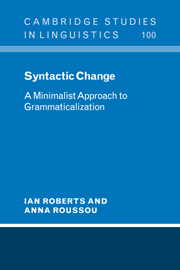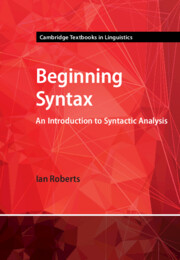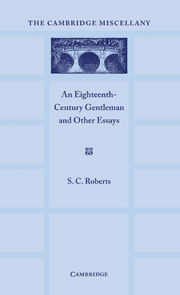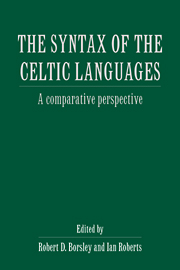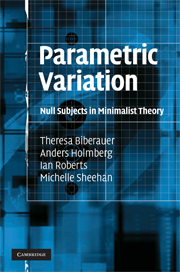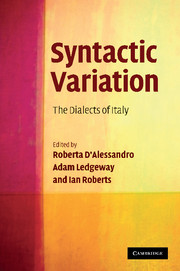Syntactic Change
The phenomenon of grammaticalization - the historical process whereby new grammatical material is created - has attracted a great deal of attention within linguistics. This is an attempt to provide a general account of this phenomenon in terms of a formal theory of syntax. Using Chomsky's Minimalist Program for linguistic theory, Roberts and Roussou show how this approach gives rise to a number of important conceptual and theoretical issues concerning the nature of functional categories and the form of parameters, as well as the relation of both of these to language change. Drawing on examples from a wide range of languages, they construct a general account of grammaticalization with implications for linguistic theory and language acquisition.
- First formal treatment of grammaticalisation
- First book-length study of diachronic syntax using minimalism
- Relates language to linguistic theory and language acquisition
Reviews & endorsements
Review of the hardback: 'In this book, Roberts and Roussou articulate the most radical and intriguing analysis of grammaticalisation to emerge within the formalist tradition in many years … The impressive range of empirical studies combined with deep theoretical insight and flawless formal rigor make this book required reading for anyone interested in syntactic change and in minimalist syntax in general. This is comparative and diachronic syntax at its very best.' George Tsoulas, University of York
Product details
June 2008Paperback
9780521066846
288 pages
229 × 152 × 17 mm
0.43kg
5 b/w illus.
Available
Table of Contents
- Acknowledgements
- Introduction
- 1. Parameters, functional heads and language change
- 2. T elements
- 3. C elements
- 4. D elements
- 5. Theoretical consequences
- References
- Index of languages
- Index of names
- Index of subjects.

